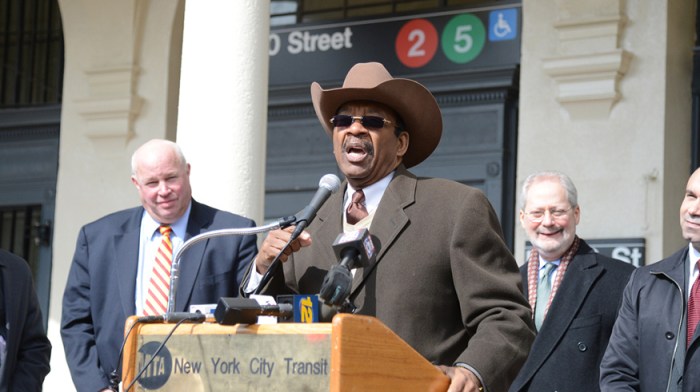Despite common knowledge of the problem, the race and gender pay gap continues to plague New York’s municipal employees, as well as the workforce as a whole. City Council’s just-passed Introduction 633, however, is looking to start building bridges.
“Women represent half of our city’s population and workforce; and yet we have been shortchanged by the very economic system that flourishes because of our contributions,” said Council Majority Leader Laurie Cumbo in a statement to Metro. “Women in New York City can no longer afford to be nickeled and dimed while we are the ones holding down our communities, households and families.”
This gender pay gap is especially pronounced among city employees, which Cumbo’s office reports to be three times larger than that experienced by women in the private sector. This is especially true for women of color, with Black women earning just over half of what white men make.
“The color of our skin, our gender or our sexual orientation should not determine how we get paid,” said Gloria Middleton, president of the Communication Workers of America union’s Local 1180 branch. “Gender parity is fundamental to whether and how economies and societies thrive. New York City’s talent pool is not comprised of just White men.”
To combat this pay gap, Introduction 633 will mandate the Mayor’s Office of Data Analytics release annual reports on the wages of city employees, highlighting any instances of pay disparities along gender, ethnic or racial lines. The report will use aggregated data, so individual workers will not have to worry about their personal salaries being made public.
“The required audit, report and access to wage data create the transparency necessary to uncover inequities,” said Beverly Neufield, president of PowHer New York, an economic justice advocacy group. “With this information, the city can examine causes, seek solutions and root out the economic discrimination that harshly impacts…women and people of color.”
Cumbo’s office acknowledges that the problem is not merely a gendered one, however. Though White women earn less than their male counterparts, they are paid more than Black and Hispanic people of any gender.
“Together, we can chart a new path towards equal pay,” concluded Cumbo.
While an encouraging first step, it’s important to note that Introduction 633 does nothing on its own to actually combat the racial or gender pay gap. Once the information becomes publicly available, City Council still has the responsibility to act on it.


















